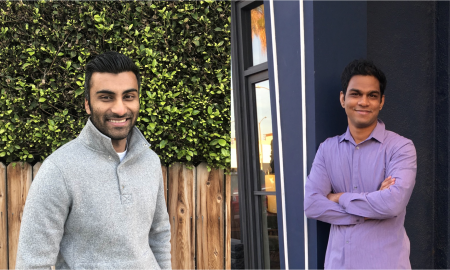

Today we’d like to introduce you to Jesús Gerena.
Jesús, can you briefly walk us through your story – how you started and how you got to where you are today.
When the job description to launch the Family Independence Initiative (FII) Boston site came across my desk in 2010, I was happy in my job working with youth in Boston. But I had a sense that the work I was doing had a ceiling of impact and I didn’t know why. I sensed it was because the service we were delivering to young people was at an astronomical cost, and when I looked at my organizational budget that year, I had a panic of conscience. Though I was proud of the impact, we were not getting enough results on a wide enough scale for the price tag. When I heard Mauricio Lim Miller speak for the first time about FII, I didn’t get the depth of the approach, but I understood he was filling the gap I was missing.
I got the job to launch FII-Boston, and I started learning through implementing the model. FII does away with the traditional top-down approach to helping people struggling with poverty. Rather than promoting a new program, service or intervention, families themselves act as agents, and our model is built on investing in them and the solutions they discover.
FII also tracks the progress of individual families as they work to build economic and social mobility. We use that data to identify which of their actions really work, and we then direct capital straight to families and communities so they can build on the same successful strategies.
It took me a few months to fully grasp the depth of FII’s approach. I remember once at the beginning, Mauricio was sitting with me during a meeting with a potential family partner. “If your house burned down tomorrow, where would you go?” he asked. She said she would go to a shelter. “You wouldn’t try to find friends or family to support you through it?” he probed. And she insisted, she liked to do things for herself. He thanked her and she left and he looked at me and said, “that’s not it.” It awakened me to the kind of partners we are looking for – those who are open to connecting with others. Community is the antidote that can eventually reach even those most isolated in the current system.
Really simply, what we’re trying to do at FII is create an alternative system. We partner directly with families and say show us your best. Show us who your community is. We want to invest in both.
We place a monetary value on social capital so that we’re able to quantify it. There is a vast economy that is happening in this country in the meals neighbors are exchanging, the rides they share, caring for each other’s children, lending money and more. We’ve seen just in the 17 years that we’ve been collecting data that over six million dollars have been exchanged in social capital.
In Greater Boston specifically, since 2010, FII has partnered with nearly 1,000 families who have, on average, increased their incomes by 17%, decreased their use of federal subsidies by 77%, and increased their savings account balances by $900. What’s more is that over the last nine years, they have exchanged $2 million in social capital, in the form of child care, transportation, lending circles, etc., which provides 5-10% of their monthly income.
Has it been a smooth road? If not, what were some of the struggles along the way?
A very common question that we get all the time is, “Are you sure when you give these dollars directly to families, that they’re doing the right thing with it? That they’re not wasting it on frivolous things?” Those questions feed on the stereotypes of who low-income people are. This causes people to believe low-income families are somehow enjoying the position without taking into account the hard work that is happening every day.
We have the data that overwhelmingly, people just do the right thing. My belief is also, we shouldn’t care. Because we don’t care about the wealthy. We give them money every day without a second thought about how they spend it. We trust that they know best. If we’re going to hold those sets of values, let’s hold them for everybody. Not just for a select few.
It’s hard for us to find true partners who want to trust and invest in the initiative of low-income families. When we do, it’s incredible because the data and technology we have can help whole systems move in another direction with confidence. You really can put solutions in the hands of people to live for themselves and give the dollars directly to them rather than into programs and services. I always say If you realize your program has been operating with harmful assumptions, you can begin to change right now. Don’t wait for us.
Family Independence Initiative – what should we know? What do you guys do best? What sets you apart from the competition?
You can think about us as a non-program. We create an environment for families to come together and share expertise. This allows them to independently change their economic situation together.
The pool of data that results from their reporting and interactions is deep and telling about the solutions that work to break the cycle of poverty. For example, we know from experience that the relatively small direct investment of $3200 that FII makes in a family, over their two years in FII, results in over $15,000 in economic impact through increased spending, government revenue, and social capital engagement.
We know what kinds of products and services families want, and we have metrics to vouch for their initiative. Just recently we launched a partnership with Nusenda Credit Union in Albuquerque to support families in obtaining low-interest loans who would not otherwise have access to capital.
Families asked for a closed social media platform. Our social media platform UpTogether brings FII families from across the country together. The possibilities are endless as this network of families continues to grow.
Our hope is that eventually, FII doesn’t need to exist because direct investment in the initiative of low-income families is the norm.
The real challenge is that families are interacting with various systems, daily (banks, government entities, social service programs funded by philanthropy; without systems reforms, the majority of families living with low incomes will not have equitable access to the resources needed to achieve their goals and dreams.
That’s why FII-Greater Boston is taking our partnership with families to the next level by using the data we’ve collected from our families over the last 9 years, as well as their individual and collective voices to pilot new approaches with the city and others.
What moment in your career do you look back most fondly on?
The question we answered was not about being proud. It was what’s your favorite childhood memory.
I can vividly remember driving around the whole island of Puerto Rico with my family. We would camp on the beach, the incredible backdrop. My grandparents lived on a Finca and we would go there almost every weekend. It was on about four acres of land, and my grandfather knew it intimately. We struggled financially, but I didn’t know that. The ability to run free and learn and make mistakes on the farm or the beach or in the mountains was valuable. Those trips helped me understand who I was, and where I came from.
Later, after we moved to the states, my mother beat the odds and graduated from social work school. I knew that she was following in the footsteps of her mother, and the tradition of social justice they were carrying from the mountains of Puerto Rico. That means everything to me.
Pricing:
- Here are just a few examples of what families have drawn funds since June: Swim lesson for a child – $10 Catch up on credit card – $90 Supplies for business – $190 Take kids on end of year vacation – $400 College Tuition Balance – $1,000
Contact Info:
- Address: 418 Centre St, Jamaica Plain, MA 02130
- Website: https://www.fii.org/
- Phone: 617-477-4175
- Email: jtaubner@fii.org
- Facebook: https://www.facebook.com/FamilyIndependenceInitiative/
- Twitter: https://twitter.com/FIInational

 Image Credit:
Image Credit:
Kara Delahunt
Getting in touch: BostonVoyager is built on recommendations from the community; it’s how we uncover hidden gems, so if you know someone who deserves recognition please let us know here.
















